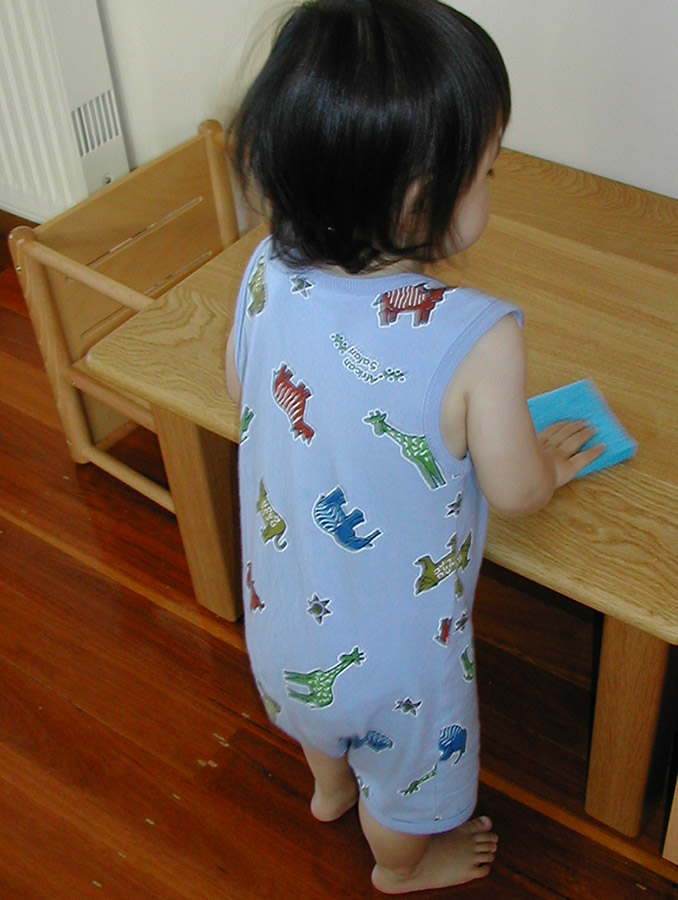The first three years of life are the most fundamental in the development of human beings and their potential. The infant's physical development is phenomenal and apparent and inspires our care and attention. Yet a profound and less obvious development is taking place within the child. Montessori refers to the child at this period as the spiritual embryo. A second embryonic period occurs after birth during the first three years of life when the child's intelligence is formed, when the child acquires the culture and language into which he or she is born. It is a period when the core of personality, social being and the essence of spiritual life are developed. An understanding of the child's development and the development of the human mind allows environments to be prepared to meet the needs of the infant and foster independence, psychomotor development and language acquisition.
Communities for Children Under Three
For children under the age of three, there are several Montessori environments. Created especially for working parents, a Nido is an environment prepared for children from 2 or 3 months until they are walking well. The Parent-Infant class provides a setting in which parents and their children, aged two to sixteen months, are gathered under the care of a trained adult. After they begin to walk, the children join the toddler group where their primary motor coordination, independence and language are cultivated. Rather than a classroom, it is a nurturing environment where very young children experience their first structured contact with other children



